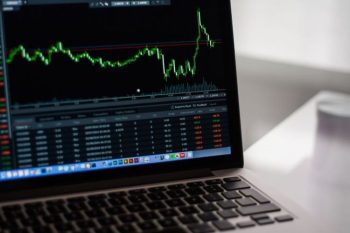CLIMATE: Majority of New Renewables Undercut Cheapest Fossil Fuel on Cost – IRENA on GEO´
Posted By: GEO´ PRChannel Team – Gibraltar
www.GEOPoliticalMatters.com
Countries urged to power past coal as new report confirms renewables would bring cost savings of USD 156 billion to emerging economies
The share of renewable energy that achieved lower costs than the most competitive fossil fuel option doubled in 2020, a new report by the International Renewable Energy Agency (IRENA) shows. 162 gigawatts (GW) or 62 per cent of total renewable power generation added last year had lower costs than the cheapest new fossil fuel option.
Renewable Power Generation Costs in 2020 shows that costs for renewable technologies continued to fall significantly year-on-year. Concentrating solar power (CSP) fell by 16 per cent, onshore wind by 13 per cent, offshore wind by 9 per cent and solar PV by 7 per cent. With costs at low levels, renewables increasingly undercut existing coal’s operational costs too. Low-cost renewables give developed and developing countries a strong business case to power past coal in pursuit of a net zero economy. Just 2020’s new renewable project additions will save emerging economies up to USD 156 billion over their lifespan.
“Today, renewables are the cheapest source of power,” said IRENA’s Director-General Francesco La Camera. “Renewables present countries tied to coal with an economically attractive phase-out agenda that ensures they meet growing energy demand, while saving costs, adding jobs, boosting growth and meeting climate ambition. I am encouraged that more and more countries opt to power their economies with renewables and follow IRENA’s pathway to reach net zero emissions by 2050.”
“We are far beyond the tipping point of coal,” La Camera continued. “Following the latest commitment by G7 to net zero and stop global coal funding abroad, it is now for G20 and emerging economies to match these measures. We cannot allow having a dual-track for energy transition where some countries rapidly turn green and others remain trapped in the fossil-based system of the past. Global solidarity will be crucial, from technology diffusion to financial strategies and investment support. We must make sure everybody benefits from the energy transition.”
The renewable projects added last year will reduce costs in the electricity sector by at least USD 6 billion per year in emerging countries, relative to adding the same amount of fossil fuel-fired generation. Two-thirds of these savings will come from onshore wind, followed by hydropower and solar PV. Cost savings come in addition to economic benefits and reduced carbon emissions. The 534 GW of renewable capacity added in emerging countries since 2010 at lower costs than the cheapest coal option are reducing electricity costs by around USD 32 billion every year.
2010-2020 saw a dramatic improvement in the competitiveness of solar and wind technologies with CSP, offshore wind and solar PV all joining onshore wind in the range of costs for new fossil fuels capacity, and increasingly outcompeting them. Within ten years, the cost of electricity from utility-scale solar PV fell by 85 per cent, that of CSP by 68 per cent, onshore wind by 56 per cent and 48 per cent for offshore wind. With record low auction prices of USD 1.1 to 3 cents per kWh today, solar PV and onshore wind continuously undercut even the cheapest new coal option without any financial support.
About IRENA
The International Renewable Energy Agency (IRENA) is an intergovernmental organisation that supports countries in their transition to a sustainable energy future, and serves as the principal platform for international cooperation, a centre of excellence, and a repository of policy, technology, resource and financial knowledge on renewable energy. IRENA promotes the widespread adoption and sustainable use of all forms of renewable energy, including bioenergy, geothermal, hydropower, ocean, solar and wind energy in the pursuit of sustainable development, energy access, energy security and low-carbon economic growth and prosperity.
Learn More/…









